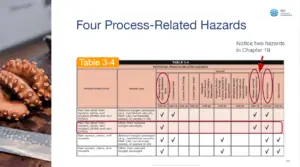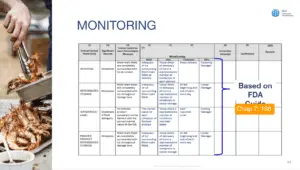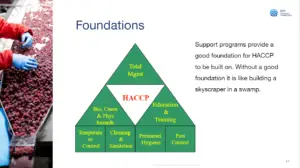Comprehensive food safety plans are imperative to protect the consumer, the brand, and the food processor’s future. HACCP is a fundamental approach to food safety required by all regulatory entities. This two-part instructor-led virtual training gives participants the knowledge to contribute in a meaningful way to the implementation of a successful Food Safety Plan.
Also available is IEH customer service at (206)522-5432 or iehacademy@iehinc.com.
By filling out this information, you are adhering to our privacy policy.
HACCP is a fundamentally scientific approach to food safety standards. Not everyone in a facility needs to be able to write a complete HACCP plan, and therefore go through a HACCP certification course. However, everyone in a food facility should understand the fundamental principles behind the identification of all inputs to a manufacturing process and the hazards that are likely to be introduced, increased, or controlled during the process.
Participants in this course will learn all of the components required in a comprehensive Food Safety Plan, and understand how Prerequisite Programs set the foundation for a Food Safety Plan.
Additionally, participants will learn to:




